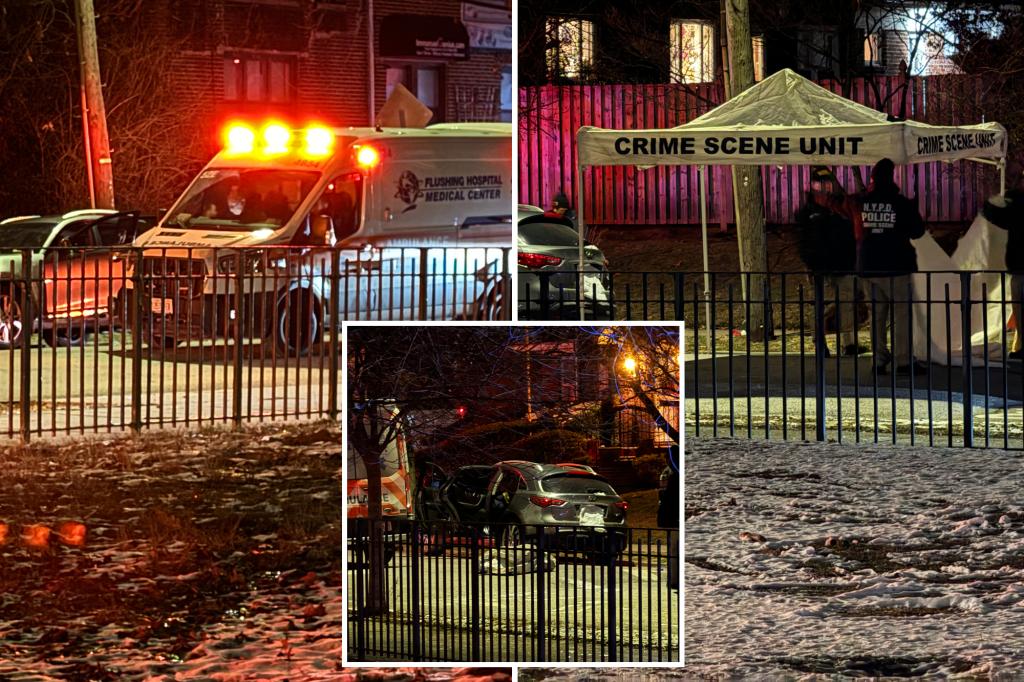The tragic death of an NYPD sergeant, who took his own life in Queens, casts a somber shadow over the city’s police force and underscores the silent struggles faced by many in law enforcement. This devastating incident, which occurred on a residential block in Flushing, serves as a stark reminder of the immense pressure and emotional toll that police work can exact on its officers. While the specifics surrounding the sergeant’s suicide remain under investigation, his death, like that of Officer Gregory Purvis a few months prior, highlights the critical need for increased awareness and support for mental health within the NYPD.
The circumstances surrounding the sergeant’s death are still emerging. Authorities discovered the 44-year-old officer, who was assigned to a Queens precinct, deceased inside his vehicle from a self-inflicted gunshot wound. The discovery, made around 7:20 p.m. on Monday evening, has sent shockwaves through the NYPD community. Out of respect for the family, the officer’s identity has been withheld pending notification. As the investigation unfolds, the focus will likely shift towards understanding the underlying factors that may have contributed to this tragic outcome and identifying potential opportunities for intervention and prevention in the future.
This latest suicide within the ranks of the NYPD adds to a growing concern about the mental well-being of officers. The demanding and often traumatic nature of police work, coupled with the unique pressures and challenges faced by those in law enforcement, can create a breeding ground for mental health issues. The constant exposure to violence, human suffering, and the inherent risks associated with the job can take a cumulative toll, leading to conditions such as post-traumatic stress disorder (PTSD), depression, and anxiety. The stigma surrounding mental health, particularly within a profession that often prioritizes stoicism and resilience, can further exacerbate the problem, preventing officers from seeking the help they need.
The NYPD, like many other law enforcement agencies across the country, is grappling with the complex challenge of addressing mental health within its ranks. The inherent culture of strength and self-reliance can make it difficult for officers to admit vulnerability and seek assistance. However, the increasing number of suicides within the force serves as a wake-up call, highlighting the urgent need for a cultural shift that prioritizes mental wellness and provides readily accessible support services. This includes proactive measures such as regular mental health check-ups, peer support programs, and access to confidential counseling services tailored to the specific needs of law enforcement officers.
The tragic deaths of the sergeant and Officer Purvis underscore the importance of breaking down the stigma surrounding mental health within law enforcement. Openly acknowledging the challenges and seeking help should not be viewed as a sign of weakness, but rather as a sign of strength and self-awareness. Encouraging peer-to-peer support and fostering a culture where officers feel comfortable discussing their struggles can create a vital safety net, allowing those who are suffering to connect with others who understand their experiences and can offer guidance and support. The message must be clear: it’s okay to not be okay, and seeking help is a sign of courage, not weakness.
The resources available to individuals struggling with mental health challenges are crucial, and their accessibility needs to be emphasized. In New York City, individuals can reach out to NYC Well, a free and confidential crisis counseling service, by calling 1-888-NYC-WELL. Nationally, the 988 Suicide & Crisis Lifeline provides 24/7 support for those experiencing a mental health crisis. Connecting individuals with these resources can be a lifeline, providing them with the support and guidance they need to navigate their struggles and find a path towards healing and recovery. The continued promotion and awareness of these resources, especially within the law enforcement community, are essential in preventing further tragedies and supporting the mental well-being of those who serve and protect.

